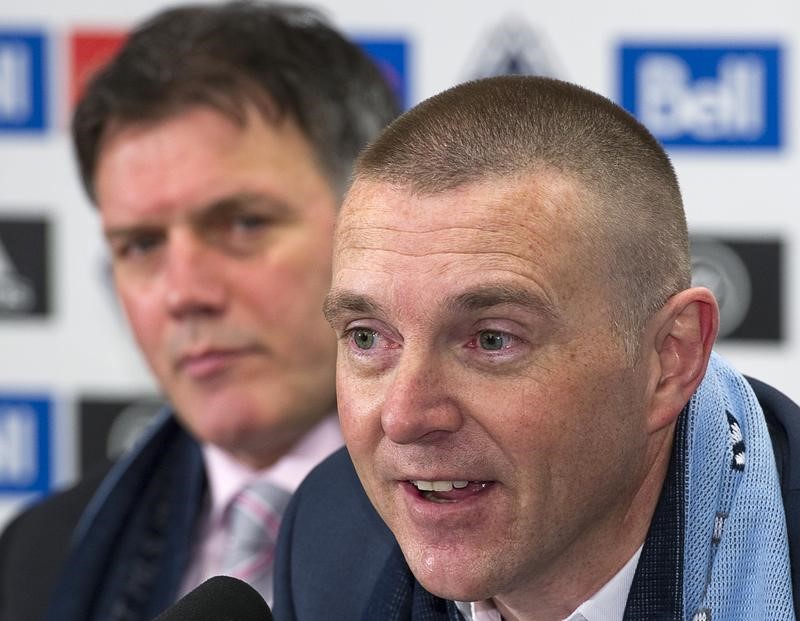By Alan Baldwin
LONDON (Reuters) - China's soccer splurge on big-name foreign players is reminiscent of the 1970s North American boom that ultimately fizzled out in failure, former Vancouver Whitecaps chief executive Paul Barber said on Tuesday.
Barber, now chief executive of Premier League promotion hopefuls Brighton and Hove Albion and an influential figure in English soccer, warned that the Super League could go the same way.
"The first two or three seasons it's a bit like lightning in a bottle. It's bright, it's exciting and it's very contained," he told a Sport Industry breakfast meeting.
"It's great to have a top division with ageing superstars, and in China's case not so ageing, but how long and how sustainable is that?"
With the backing of soccer fan President Xi Jinping, China has been on a spending spree on players, clubs and overseas assets over the last two years.
Shanghai Shenhua bought Argentina striker Carlos Tevez from Boca Juniors last December for a reported $88.56 million (£71 million), making the 32-year-old the sport's highest paid player with a reported salary of $753,000 per week.
Shanghai SIPG spent around 63 million dollars to lure Brazilian Oscar from Chelsea and are paying the midfielder a reported $490,000 a week.
Barber compared China to the example of America in the late 1970s with top players such as triple World Cup winner Pele, at the New York Cosmos, Dutch maestro Johan Cruyff and George Best were lured across with big money deals.
"It was very much like the Chinese scene now...they had some of the best players in the world playing for couple of years, attracting huge audiences, huge money and then within three years it was dead.
"Because there was nothing behind it to sustain it. At the moment it looks very much like that to me," added Barber, who is on the board of the English Football League and represents that body on the FA Council and Professional Game Board.
"But who knows. China is China."
Barber recognised that Chinese clubs had financial clout and government backing but said the best leagues had learned that they were not sustainable without a grassroots structure nurturing home-grown players.
The North American Soccer League (NASL) operated from 1968 to 1984, with popularity peaking in the 1970s when World Cup-winning captains Carlos Alberto of Brazil and West Germany's Franz Beckenbauer also joined the party.
It went into rapid decline in the early 1980s, with loss-making clubs spending an unsustainable amount on foreign players.
Major League Soccer (MLS), founded in 1993, operates profitably with shared revenues and a salary cap.
